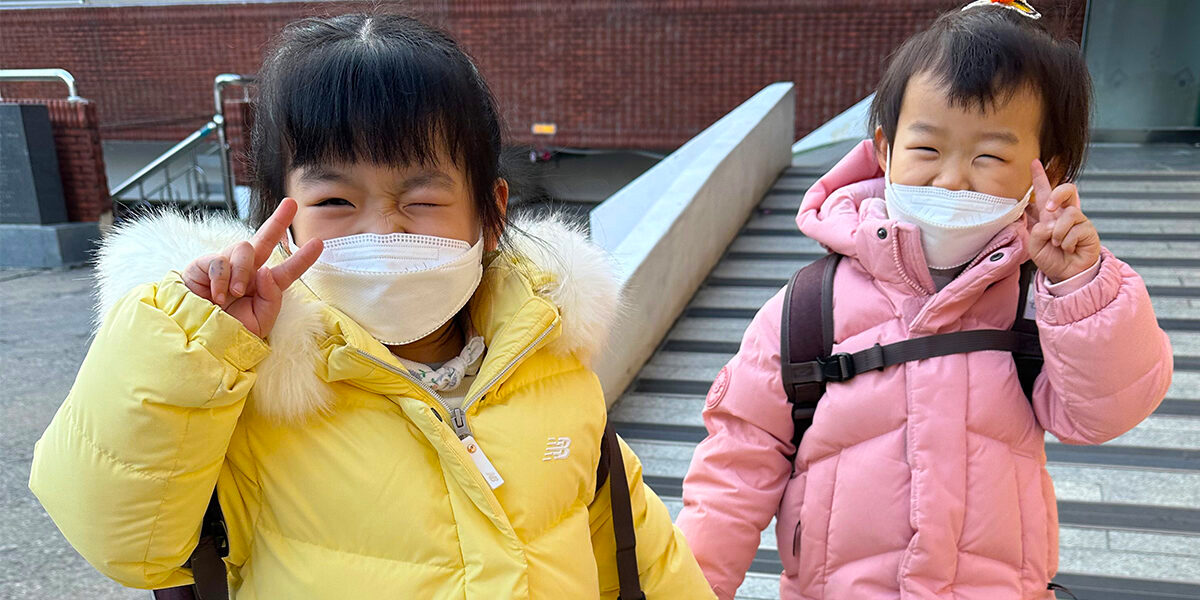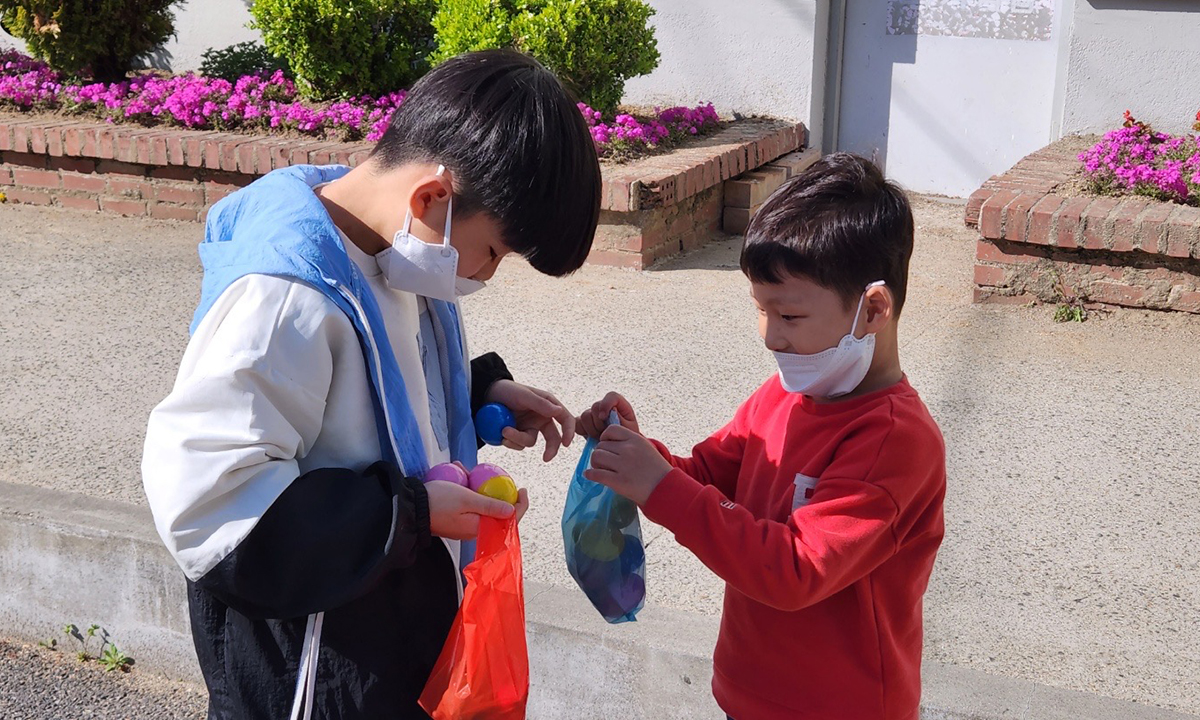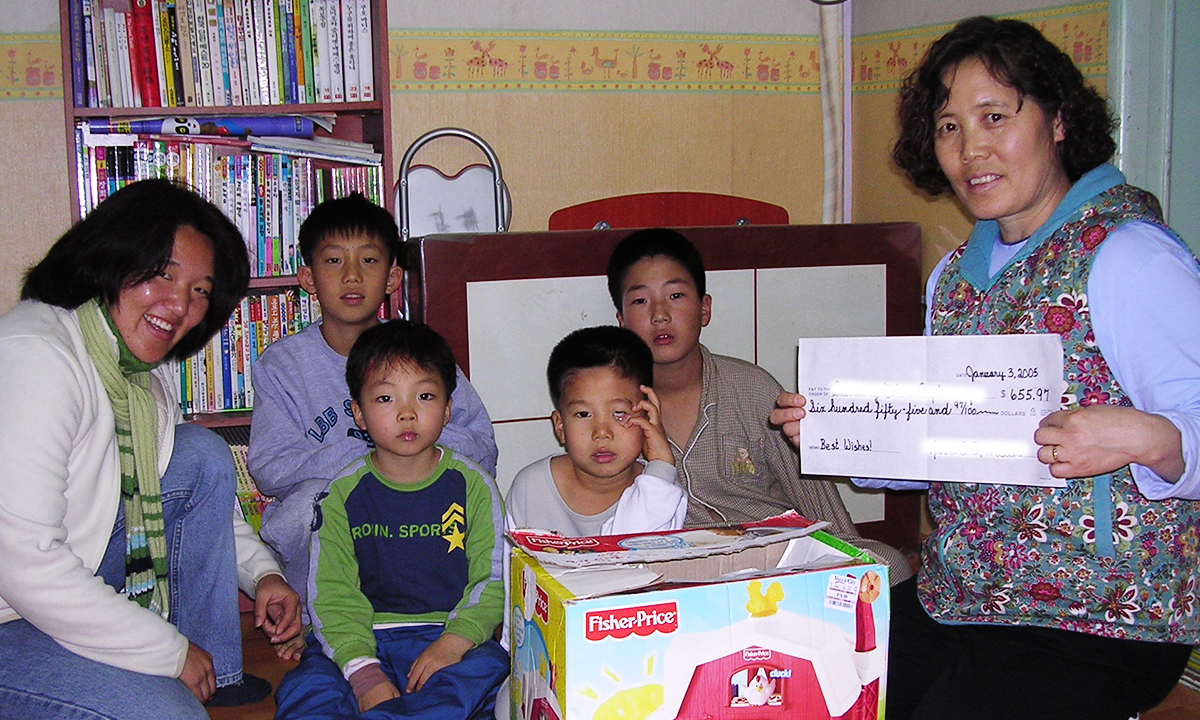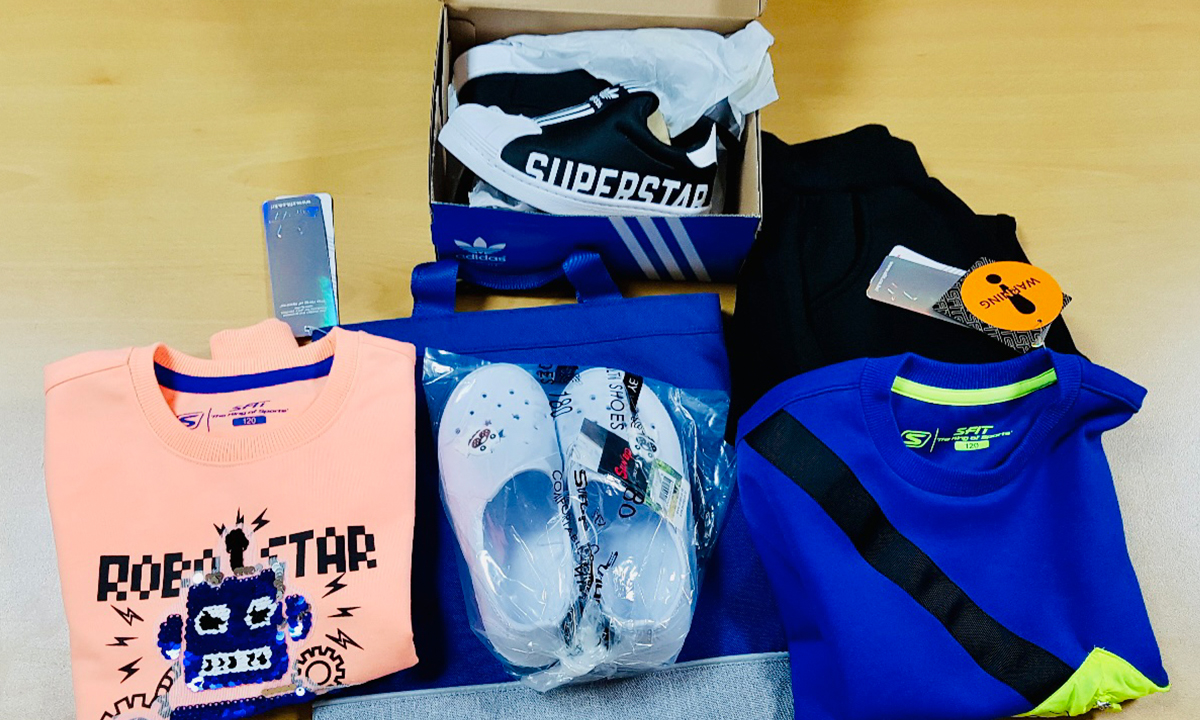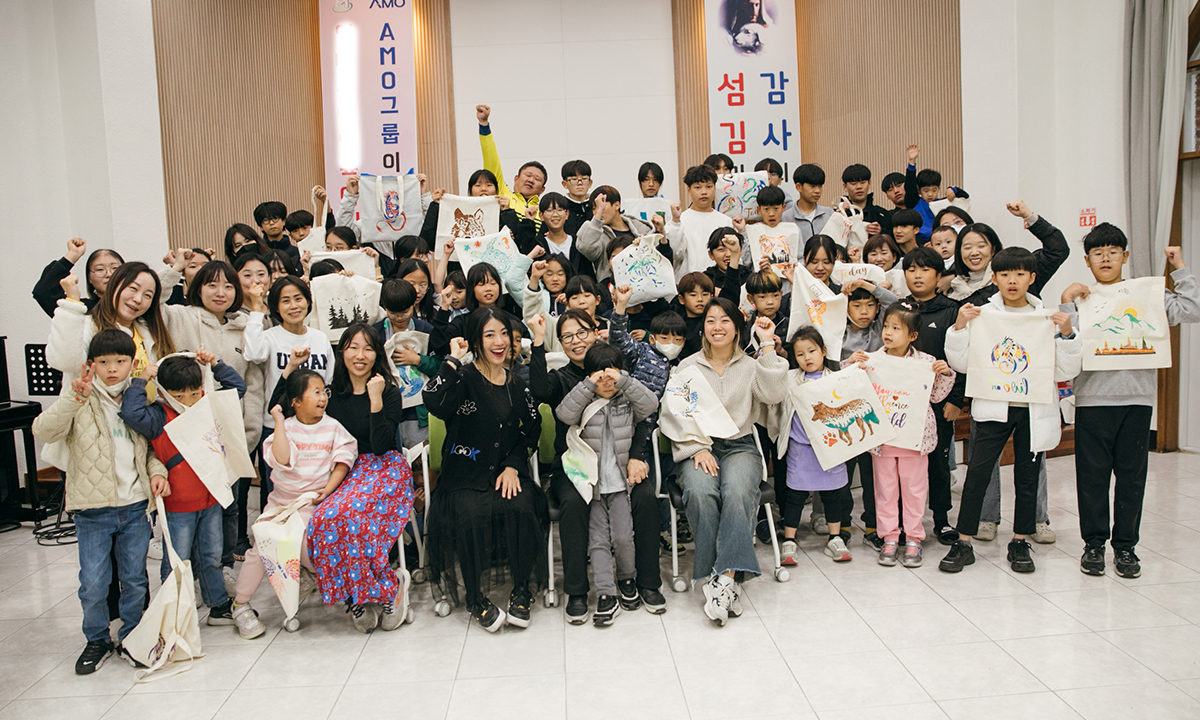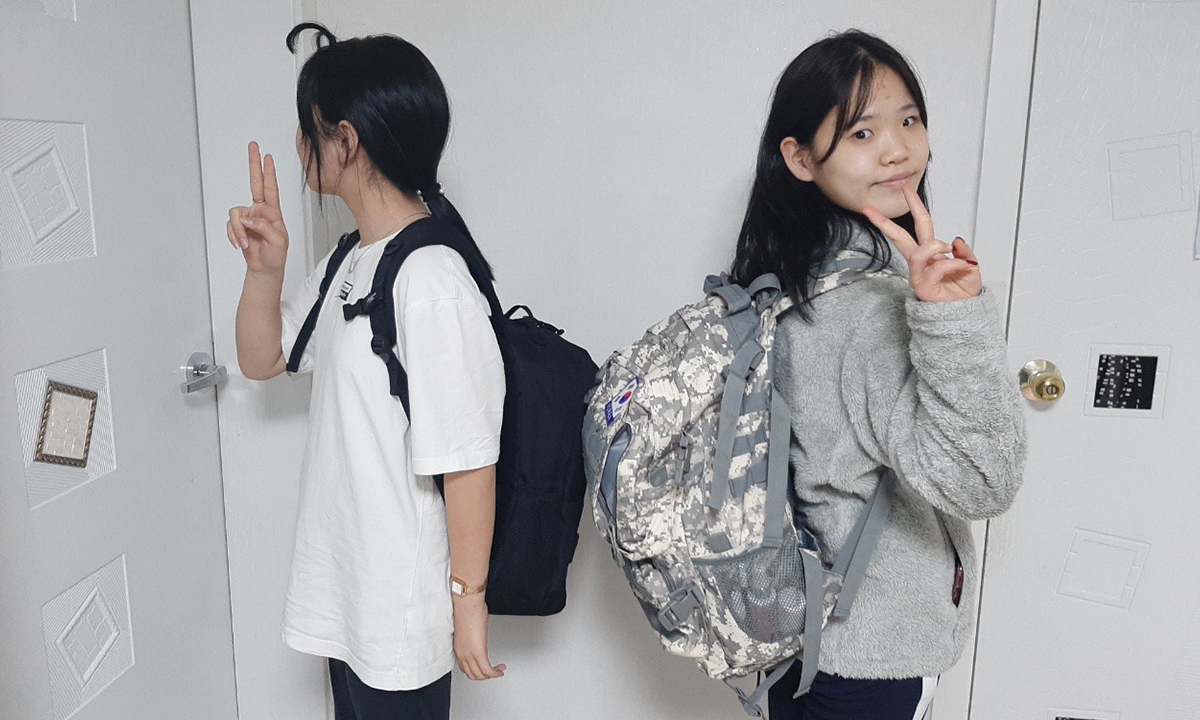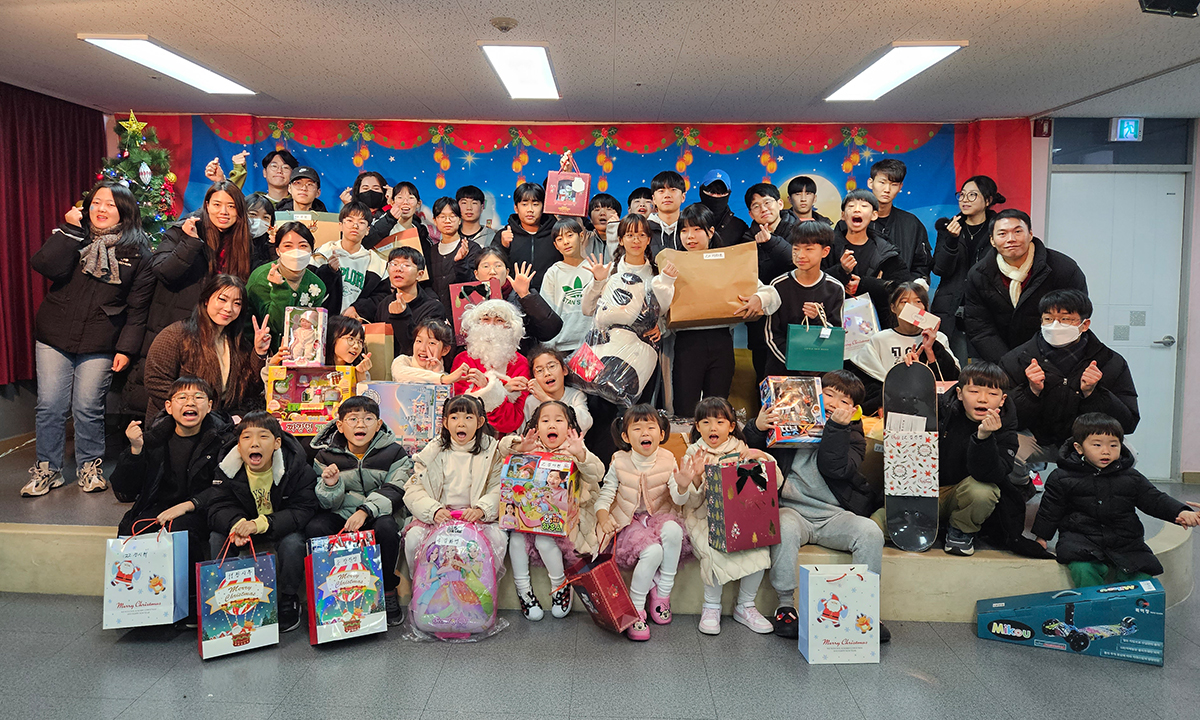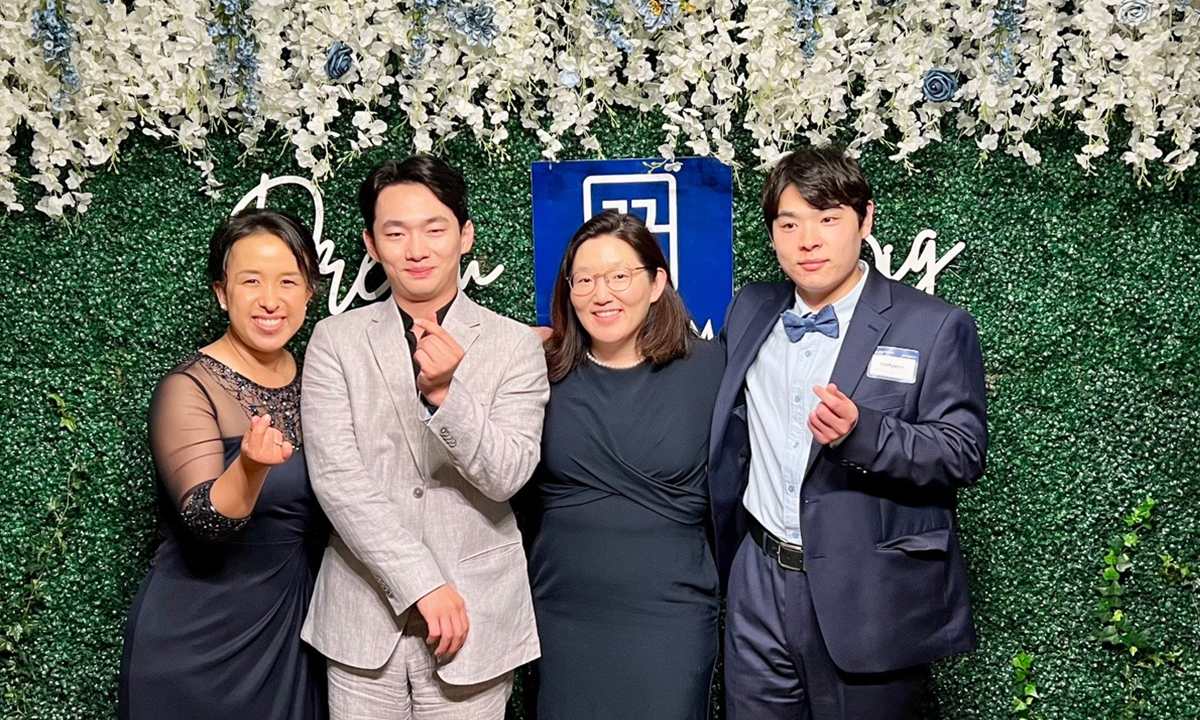What Every Child Deserves
The door of the children’s home opens. It is still thirty minutes before KKOOM’s Spring Scavenger Hunt, but as you walk in, curious and eager eyes of kids are already staring up at you. As the event starts, you find yourself in a swirl of children excitedly dashing around here and there. They have their eyes on the prize. Their main goal is to find as many colorful, plastic, candy-filled eggs as possible.
As you take in all the energy and excitement, there’s a beautiful sense of normalcy in this experience. Today, the kids can simply focus on having fun and being themselves, leaving any worries or burdens at the door. This is what home should be like for every child, and why nonprofits like KKOOM work so hard to help create moments and memories like this one.
Children’s homes and orphanages no longer exist in the US. But in Korea, there are thousands of children in the social welfare system who still live in these facilities.
How a Passion Project Turned Into an International Nonprofit
In the Fall of 2004, a small group of Fulbright English Teaching Assistants (ETAs) started a volunteering project at a children’s home in Gumi, South Korea. Little did they know that this volunteer experience would become the backstory for KKOOM, a 501(c)(3) U.S.-based nonprofit that makes dreams possible for Korean children living in the social welfare system.
After the Fulbright ETAs learned about the lack of holiday funding for the children’s home in Gumi, they decided to raise money for Christmas gifts. As this fundraiser gained momentum and sustained support over the years, these humble beginnings gave way to KKOOM’s founding in September 2007. Today, KKOOM is a sustainable nonprofit that impacts the lives of approximately 170 children at three children’s homes.
In addition to these Christmas gifts and holiday parties, KKOOM provides funding for preschool and college scholarships, summer activities, and other events throughout the year, largely thanks to individual contributions and grants. With a focus on education, KKOOM helps children and young adults have fun while learning important life skills.
KKOOM also gives gifts of clothing, household items, and other tangible things that the children’s homes need on a case-by-case basis. Many of these gifts often go to the children who are moving into children’s homes for the first time. Gifts like these help them feel welcomed, safe, and cared for upon arrival. By recreating a sense of “normalcy” for the children, KKOOM helps bridge equity gaps in the childrens’ everyday lives, development, and education.
Breaking the Stigma for Korea’s “Protected Children”
In South Korea, the words “orphan (고아)” and “orphanage (보육원)” often come with negative social stigma. This is one of the main reasons why KKOOM has moved away from using its original full name, “Korean Kids and Orphanage Outreach Mission.” Instead, KKOOM has focused on using its acronym, “KKOOM,” which is also the Korean word for “dream (꿈)”.
Leading by example, KKOOM now refers to Korean orphanages as “children’s homes” to describe the place where the children live. Many of the residents of children’s homes come from diverse backgrounds. This is another reason why the Korean government has shifted their language usage, choosing to use the term, “보호대상아동,” which translates to “protected children” in English.
“Protected children (보호대상아동)” encompasses those who do not have guardians, are separated from their guardians, or who were subject to inappropriate living conditions due to issues like abuse or neglect. The Korean Ministry of Health and Welfare data reveals that 2,289 children qualified for protection (보호대상아동) in 2022.
Filling Educational Gaps in Early Education
What makes KKOOM truly unique is their focus on supporting preschool scholarships. With a strong focus on education in Korea, many children attend private schools and academies at two years of age. However, the Korean government doesn’t provide funding for toddlers in the social welfare system until they are four years old.
As you can imagine, this gap widens the educational divide and makes it extremely hard for students who can’t access or afford private education. (This gap only continues to widen as children get older, due to the heavy reliance on private academies and tutors to supplement public school education in Korea.)
Over the years, KKOOM’s fundraising goals have shifted in recognition of these needs. By offering preschool scholarships in addition to college scholarships, KKOOM helps to level the playing field, providing the opportunity for young children to have a fair shot at academic success. While there are other nonprofits that provide academic scholarships for youth in Korea’s welfare system, KKOOM is proud that it is one of the only nonprofits that also supports early education.
In the words of KKOOM’s Executive Director, Grace Lee, “One of our strengths is our strong relationships with the staff at the children’s homes where there is trust, accountability, and community to support Korean youth. While we celebrate this strength, we also see an opportunity to provide more scholarships to toddlers beyond our personal network of children’s homes. (“Growing our Impact – Spring Update”, KKOOM.org)”
Support for Youth Beyond the Korean Welfare System
On the other end of the spectrum, once a youth has aged out of the Korean welfare system at the age of 18 (Korean age 19) the financial support they receive ends. When they “graduate,” they must immediately find housing and jobs, and start paying other living expenses. For many, this can be a difficult and stressful adjustment, as they face the realities of living on their own with far less support than they had living in the children’s homes.
Budgeting and managing finances for recently aged out youth can also be a huge hurdle to climb, especially since they often have a lower starting income than their peers. Based on a 2020 National Center for the Rights of the Child (NCRC) survey on the status and needs of children who no longer receive protection (보호종료아동), the average monthly salary (after-tax) was around 1,820,000 KRW (approximately $1402).
In comparison, according to the OECD, the average household net-adjusted disposable income per capita is 2,641,000 KRW per month (approximately $2,015). The major factors affecting this monthly salary discrepancy include gender, age, education level, disability status, health insurance type, time since the end of child protection, and self-reliance allowance.
With financial expectations and burdens, hopes and dreams for college can often feel far off. In the same NCRC 2020 survey, 1,019 youths who aged out of child protection services (보호종료아동) reported why they chose not to pursue higher education past secondary school. The primary reason was that they wanted to generate a stream of income as fast as possible (51.2%), and the second-most frequent reason was not having enough funds (15.7%). However, the least significant reason for not entering college was due to lack of preparation (2.6%).
This same question was asked to youth who were expected to age out of child protection services (보호종료예정아동). In this instance, the second largest reason for not attending college was lack of preparation (19.8%). However, this is not a reflection on work ethic or intelligence. To more deeply understand this answer, one must also understand the importance of Korea’s “hagwon,” or private academy and tutoring culture. For families who can afford additional educational support, it has steadily become the expected norm for children to receive hours of private education every day in order to keep up with peers and gain entrance to competitive Korean universities.
While the survey numbers might be startling and bleak, this is where nonprofits like KKOOM come in. Funding costs for recent high school graduates pursuing higher education, KKOOM has been able to support a few individuals like Minyeol, a young adult who aged out of Korea’s social welfare system. Since 2017, KKOOM has supported Minyeol, first in receiving his Associate’s Degree and now in his third year as a Theology Master’s student. Dreams like these are made possible when youth from every background deserve a fair shot at success.
KKOOM also supports young adults like TaeHyun and Nayeon who have found their way to the US with hopes of making a fresh start and settling down permanently in America. Young adults like these desperately need a support system of people who are willing to help them with visas, resumes, and job opportunities.
KKOOM: Making Dreams a Reality
Months later as the seasons changed from spring to summer to winter, I found myself back in the same children’s home where I volunteered this past spring. Along with a few dedicated volunteers, we were prepping for the long awaited KKOOM Christmas Party (one of the two children’s homes and parties KKOOM hosts annually). When I opened the door, eager eyes awaited me once more. And just like last time, it all went by in a frenzy of excitement, this time with the addition of a small flurry of snow.
Thanks to tried-and-true annual traditions like cookie decorating, gingerbread house competitions, talent performances, etc. KKOOM’s Christmas Parties were a success. In addition to some new traditions like trivia games and nail decorating, KKOOM’s parties have also remained true to their humble beginnings. Santa successfully delivered Christmas presents to all of the children’s homes KKOOM supports. He even made a guest appearance at one of them and took photos with the kids.
At the end of 2023, KKOOM looks back on one of its largest years of financial support and growth. Through events like KKOOM’s first-ever gala, generous donor support, to the securing of large grants to help support future program development, KKOOM also sponsored many events, activities, and scholarships.
One of the most notable developments was the Minnesota Stay Program, which flew two children to America during their 2023 summer break and gave them the opportunity to live with American host families. This experience gave them the chance to see the wider world and learn important life skills like household chores, community work, and interpersonal skills. They also were able to engage in fun activities like learning how to swim and going to professional sports events, all of which helped round out the educational support aligned with KKOOM’s mission.
Beyond the classroom, KKOOM has an all-encompassing vision on how education and outreach can help improve the lives of Korean children in the social welfare system. All of this is only made possible through the sustained support KKOOM has received since its inception. Thanks to a dedicated Board, volunteer base, and generous donor support, KKOOM will continue to help Korean children and youth dream big in 2024. In the words of BTS, “(the) best moment is yet to come.”
How You Can Help
- Donate to KKOOM and keep up with our mission: KKOOM’s Website
- If you would like more information about the Minnesota Stay Program, please contact us.
- Please follow KKOOM on social media for ongoing updates and information:
Related Articles
Fulbright Korea: 10 Tips for a Winning Application
Lifting Up Our Own: Wall Street Legend Dow Kim Pledges Millions to the Korean American Community
Let’s Go to Camp Naru! Summer Youth Camp for Korean American & Multi-Ethnic Kids

